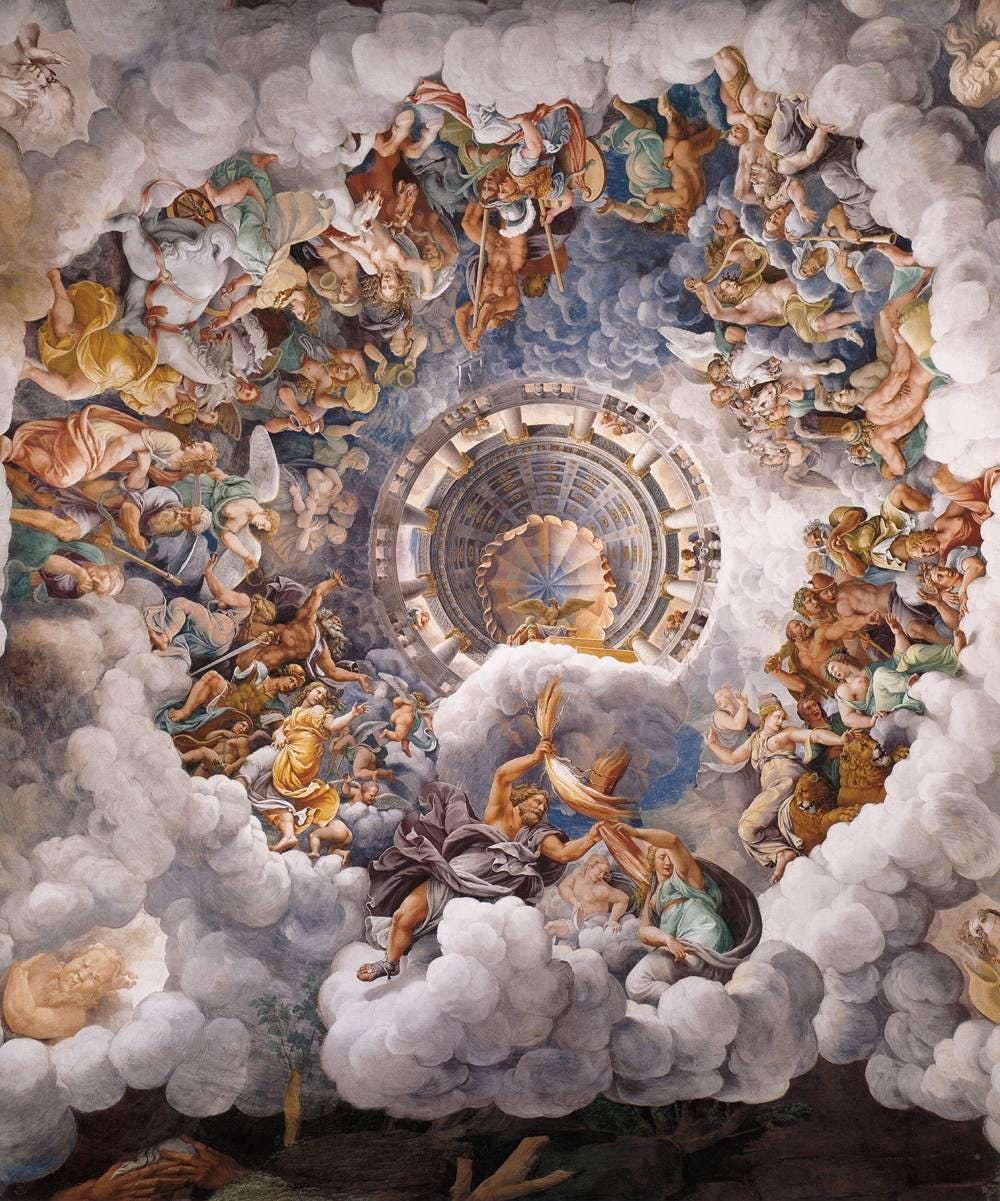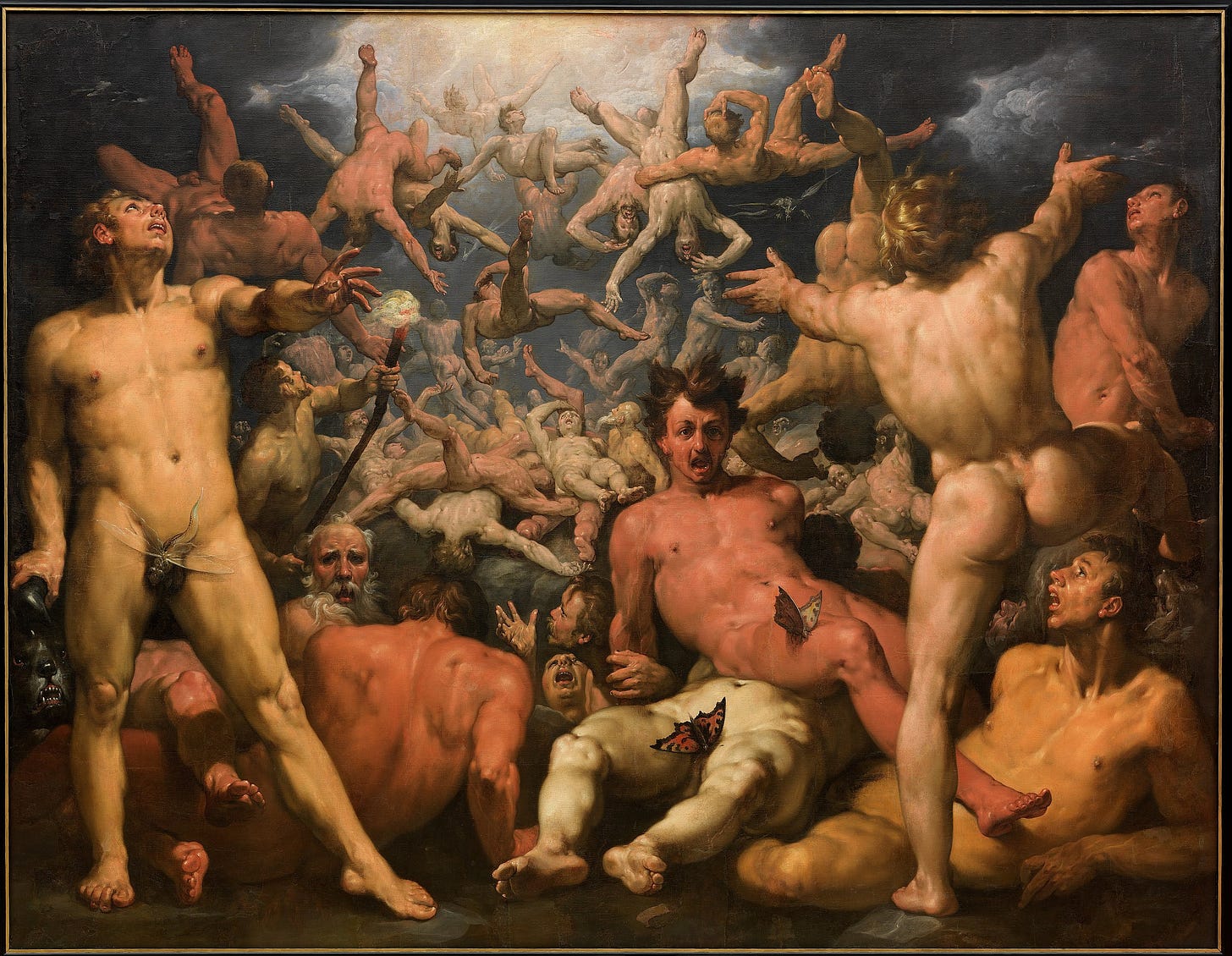Welcome to
. The following is part of our Holy Land series. For the full map of Cosmographia posts, see here.Now as the Dawn flung out her golden robe across the earth
Zeus who loves the lightning summoned all the gods
to assembly on the topmost peak of ridged Olympus.
He harangued the immortals hanging on his words:
"Hear me, all you gods and all goddesses too,
as I proclaim what the heart inside me urges.”
— Homer, The Iliad (c. 8th century BC)
Today, the vast majority of the world’s population take for granted the idea of a singular, all-powerful God. But it was not always so.
In truth, the idea of one, and only one, supreme deity, is a relatively recent evolution. Much of pre-history was dominated by animism — the belief that animals, plants, rivers, the sky, even objects like rocks — possess some form of spiritual essence, akin to a soul. With the rise of human civilisation, what were once local personifications of natural forces ascended into complex pantheons, complete with more organised rites of worship and ritual. From Mount Olympus to Aaru, from Asgard to Mount Meru, more than one god sat in heaven.
So, when the Israelites proclaimed, “know that LORD he is God; there is none else beside him,” (Deuteronomy 4:35) it was a break with tens of thousands of years of theological tradition. Though some cultures like Vedic India, Shang Dynasty China, and Zorastrianism, had flirted with monism (oneness), they were never strictly monotheistic. They always maintained the existence of lesser divinities alongside Brahman, Shangdi, and Ahura Mazda. This makes the God of Israel’s declaration to Cyrus the Great, ruler of the pluralistic Persian Empire, as startling as it was novel: “I form the light and create the darkness, I bring prosperity and create disaster. I, the LORD, do all these things.” (Isaiah 45:7) This idea was fiercely maintained, at the cost of much bloodshed, within the Christian doctrine of the Trinity, and found perhaps its most potent expression in the Qur’an: “There is no god but GOD.” (Al-Qitāl 47:19)
There had been a revolution in the Kingdom of Heaven. From many, one.




